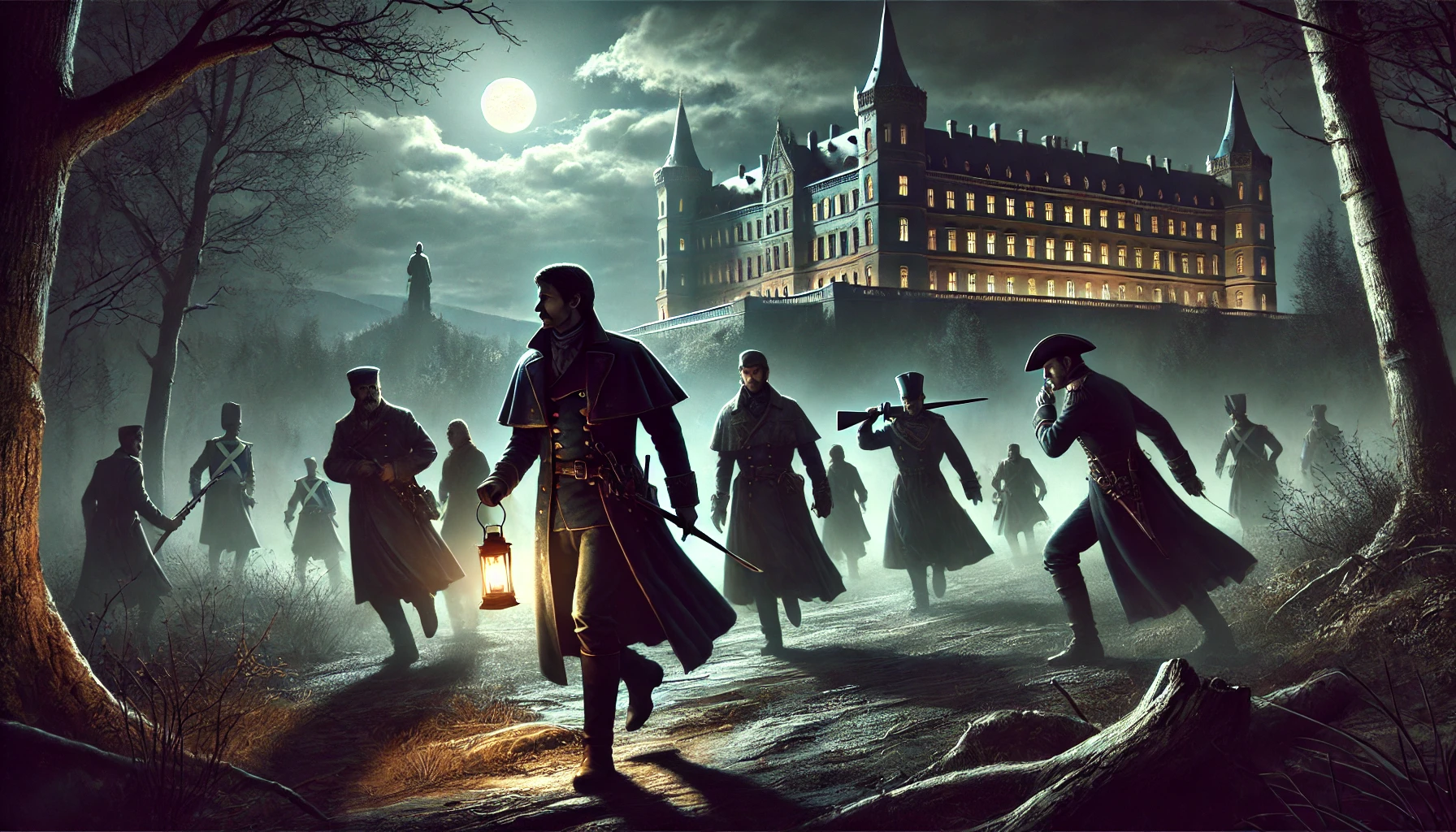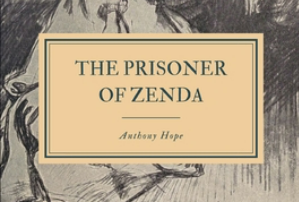Chapter 5 — The Adventures of an Understudy
byChapter 5 – The Adventures of an Understudy opens with Rudolf stepping onto the platform, embodying his royal disguise with practiced ease. Armed with a revolver and sword, he exudes quiet confidence, aware of how critical appearances have become. A delegation of important figures greets him, including Marshal Strakencz, a battle-hardened symbol of national pride, and the Chancellor, whose solemnity reflects the weight of the occasion. Rudolf, now living as the King, greets each man with practiced poise. The absence of Duke Michael is noted but tactfully dismissed, offering a glimpse into the silent tension pulsing beneath royal decorum. What might have been a routine event becomes an elaborate test of deception.
Their journey through Strelsau presents a vivid study in contrasts. On one hand, the polished neighborhoods cheer for the King with genuine fervor; on the other, the impoverished quarters remain quiet, veiling loyalty to Duke Michael behind shuttered windows. The air grows thick with implication, though no one dares say what is seen in those hushed streets. Rudolf, while receiving admiration, remains sharply aware of the undercurrents that ripple through each neighborhood. Even the scent of rose petals thrown in celebration cannot hide the political division. It becomes clear that Strelsau is not merely watching a coronation—it’s calculating outcomes. Through it all, Rudolf keeps his bearing, never letting on that the man they cheer isn’t the one born to wear the crown.
As they move deeper into the heart of the capital, Rassendyll’s performance begins to feel more like a second skin. He waves, nods, and smiles at the right times, constantly aware that one misstep could unravel everything. The pressure intensifies when Antoinette de Mauban is spotted among the crowd. Her presence adds layers of tension—she knows him, and one word from her could collapse the illusion. But she stays silent, her eyes filled with intrigue rather than betrayal. Whether out of curiosity or secret intent, her decision to withhold the truth grants Rudolf precious time. Every second among these watchful eyes becomes a calculated risk.
The climax of this chapter unfolds within the grand Cathedral of Strelsau. High ceilings echo with ceremonial chants, and every noble eye watches for signs of hesitation. For a fleeting moment, Rudolf’s nerves surge, shaken by the enormity of his role. Yet he continues, kneeling at the altar, accepting a crown that was never meant for him. His hands remain steady, a contrast to the storm within. Across the aisle, Black Michael’s eyes widen, his shock barely concealed. Whatever plans he had laid were clearly built on the assumption that the King would never arrive—yet here stands one, seemingly unharmed and confident.
Following the coronation, Rudolf mingles among the aristocracy, keeping up his act with relentless precision. Every bow, handshake, and royal nod becomes a performance layered with unspoken danger. Princess Flavia, radiant and observant, engages him with familiarity and warmth, though she notices subtle changes in his behavior. Her questions are laced with concern and intuition, and it’s clear that while she doesn’t suspect the truth, she senses something has shifted. Rudolf must walk a tightrope, offering answers that soothe without revealing too much. His words, carefully chosen, suggest depth and emotion—but behind them lies the fear of discovery.
Their shared carriage ride afterward becomes the emotional heart of this chapter. With the pomp behind them and the city fading into the background, the atmosphere turns intimate. Flavia’s gentle remarks about Rudolf’s character spark deeper reflections in him. He sees her not just as a princess, but as a woman who deserves truth and respect. Yet the pretense forces him to remain silent, offering only fragments of sincerity wrapped in vague sentiment. When he allows himself to speak with warmth and affection, it crosses into dangerous territory. These moments blur the line between duty and desire, and it’s clear the longer the charade continues, the greater the emotional cost.
This chapter deepens the complexity of Rudolf’s role—not just as a political imposter, but as a man ensnared by moral and emotional conflict. The thrill of deception begins to give way to the burden of conscience. He is surrounded by people who trust him, admire him, even love him—yet none of them truly know who he is. The reader feels the weight of his choices pressing harder with each passing scene. Even the grandest crown cannot mask the truth forever, and each gesture risks piercing the veil of the performance. Still, Rassendyll pushes forward, driven by honor, duty, and something harder to define: the growing realization that this borrowed life may change him forever.
From a broader perspective, the chapter skillfully layers political drama with emotional nuance. Readers not only follow the suspense of the impersonation but also the quiet tug of internal transformation. Rudolf’s actions speak volumes about character under pressure and the complexities of living a lie for noble ends. These themes remain relevant today—whether in politics, identity, or social masks we all wear. Furthermore, it hints at the broader tension in Ruritania between those loyal to tradition and those seduced by power, mirroring real-world divides seen in many nations. As this chapter closes, the stage is set for more intense confrontations—both external and internal—and the price of deception grows higher with each step forward.


